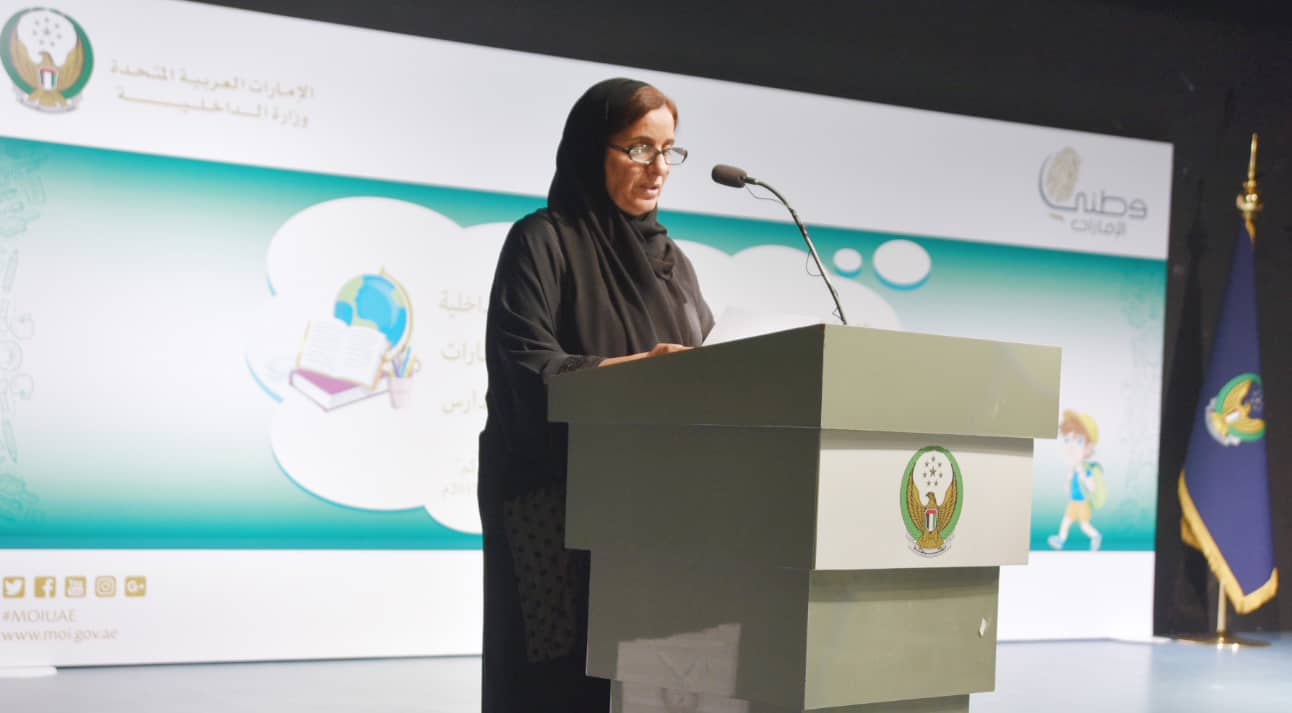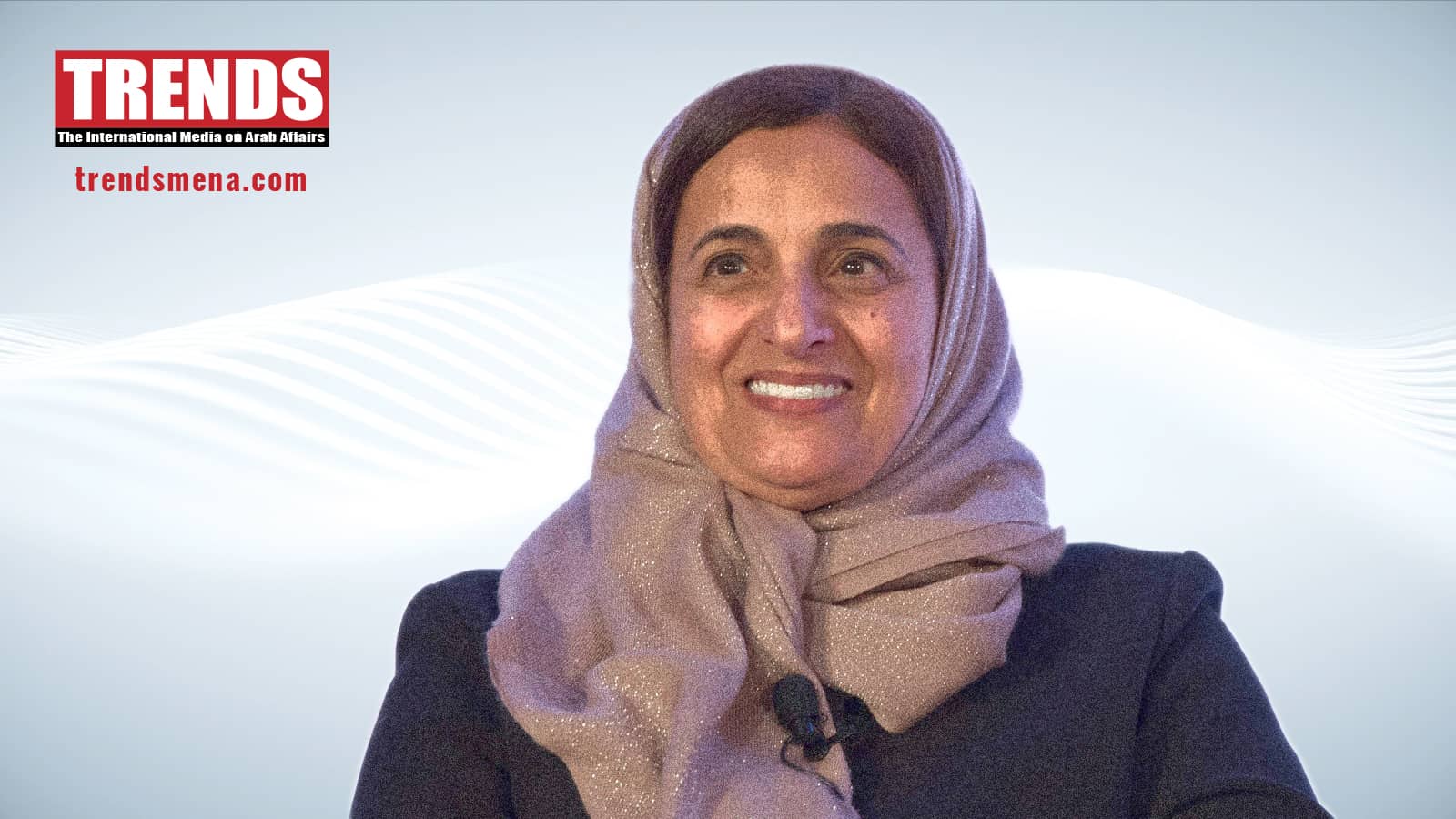Sheikha Lubna Bint Khalid Al Qasimi — the first Emirati woman to assume a ministerial post — is seen as a trailblazer, someone who always dared to be different.
Despite an illustrious career it’s her humility that’s striking.

“None of the posts that I ever held was about me. It was always about my country and how I could be a better public servant,” she told TRENDS during an exclusive interview.
Sheikha Lubna has held several key positions in the UAE Cabinet, including Minister of Economy (2004-08), Minister of Foreign Trade (2008-13), Minister of International Cooperation and Development (2013-16), and Minister of State for Tolerance (2016-17).
She was also the President of Zayed University (2014-18).
Defying odds, raising the bar
Sheikha Lubna’s journey is not only inspirational but clearly marked by an urge to defy all odds to become an agent of change.
“While growing up, I loved studying science and math. I preferred spending most of my time solving mathematical problems than socializing. I was a bit of a geek in that sense,” she said.
“I had many dreams. I wanted to be a physicist. But at that time [in the mid-70s] these fields weren’t as advanced as it is today. On the other hand, my family was keen for me to pursue medicine,” she said.
“Eventually, I decided to study computer sciences [another unconventional field at that time]. There were no computers in the UAE at that time [around 1975]. I received a scholarship from the government to study computer sciences abroad, specializing in system architecture,” she recalled.
When Sheikha Lubna returned to the UAE after graduating, there was no job in her field.
“I got a job with a company that developed software for businesses. It was an Indian company where I was the only Emirati woman and often mistaken as the boss’ secretary,” she recalled.
“But I had so much passion for technology and coding that I stayed in that job instead of taking up a lucrative government job. And it set my path towards a career in technology as I then worked at the United Arab Emirates University in Al Ain as a system engineer followed by a seven-year stint at the Dubai Ports Authority,” she fondly recollected.
In 2000, Dubai ruler Sheikh Mohammed bin Rashid Al Maktoum, also Vice-President and Prime Minister of the UAE, established an ecommerce platform called Tejari.com and Sheikha Lubna was asked to lead.
She would also go on to head the executive team that developed the Dubai eGovernment initiative.
Navigating challenges
In 2004 came a massive turning point in Sheikha Lubna’s career as she became the first Emirati woman to be appointed a cabinet minister in the UAE.
Since then, the UAE’s public sector has done a commendable job of bridging the gender gap. But when Sheikha Lubna became a cabinet minister, it was a different time.
Asked how she navigated various challenges, she said, “Trust from and support by the government was never an issue as they believed in my capabilities to deliver. But for me a bigger challenge was moving from a 19-member startup company to leading a ministry with a staggering 300-plus members.
She continued: “Initially, it was scary. I also harbored doubts about my ability to manage everything. Then it dawned on me that the government had appointed me and would support me to succeed, and that support was there all along.”
However, there were other challenges.
“When I went for my first World Trade Organization (WTO) meeting [in Hong Kong] and was about to deliver my speech, someone approached me and asked for the authorized UAE minister expecting a male representative. But I must add that once I started having dialogues with international delegates there was a lot of respect and acceptance,” she shared.
Changing perceptions
While a lot has changed, some misguided perceptions still exist, and Sheikha Lubna concurs.
“There are general misconceptions about the Gulf region, but not limited to women alone,” she said.
“Our region is seen as dominated by oil-rich people who are not so educated. But then we have examples like Expo 2020 Dubai which many doubted would ever take off. It not only happened despite the global pandemic related challenges but was a resounding success. And it was led by a woman: Reem Al Hashimy.”
The UAE’s Hope Probe project is also led by a woman: Sara Al Amiri, who also chairs the UAE Space Agency.
Almost 70 percent of the engineers at Strata [a UAE-based composite aero-structures manufacturing facility] are women.
There are several women engineers in the Emirates Nuclear Energy Corporation.
A lot of women work in senior roles in companies such as Abu Dhabi National Oil Company (ADNOC).
“That’s the thing: The UAE has never shown resistance to accepting women in any field of work,” said the Sheikha.
“Today the UAE is a great place for young people to come and work or set up their businesses due to the sheer diversity and opportunities.”
In summation, Sheikha Lubna explained that empowerment of women and giving them the right opportunities is not new.
“It had already started with the foundation of the UAE. The priority at that time was health and education for all. Noticing that some families were unwilling to let girl children study abroad, universities were built here,” she said.
“While I may have paved the way for women in the political arena, there were many women who were already leading the way [at that time] in fields such as medicine, engineering and more. Now there are nine women ministers in the UAE Cabinet. This has had a tremendously positive impact in the GCC as more women are getting appointed in ministerial positions.”
Being a role model
Asked about how she manages to stay a role model for many, Sheikha Lubna said: “At the recently concluded World Government Summit, several women came up to me and shared how many years ago one of my lectures at their university positively impacted them. That my email encouraged them.”
She continued: “When I was at their age, I didn’t have anyone who did this for me. Offering a word of encouragement or advice comes to me naturally as a habit and from a point of good intent.”
She also said: “If I can positively impact one person, just one person, everyday then it’s a good legacy.”
Message to parents
Asked if she had a message for parents, Sheikha Lubna said: “When I was young, I dreamt of doing many things, but the picture wasn’t always clear. Today its much different as there are several opportunities.”
She continued: “Our parents and founders of the nation have left us a legacy of diversity, consciousness, resources, and good diplomacy. Now we must do the same for our future generations.”
She also said: “The UAE government has always been keen to support young people to become changemakers. If we want to guarantee a good future for our next generation, they must lead the way.
“But parents must build the right foundation and value sets, equip children with education and the right attitude. In the UAE every generation witnesses significant changes, but one thing has remained constant — the government’ support towards and confidence in youth, which is a huge differentiating factor for our country. That legacy must continue.”








